- Home
- Chris Ryan
The Kremlin Device Page 2
The Kremlin Device Read online
Page 2
I had time for a wash and the hundredth run-through of my own cover identity, just in case I was pulled. According to my passport I was Malcolm Barrow, aged thirty-six, from Ainwick in Northumberland. I'd been to France to visit friends who'd bought an old pub in Normandy and wanted some restoration done. I had the name of the place in my head L'Auberge all Vieux Puits but, conveniently for me, it was very primitive and had no telephone, so no quick checks could be made.
Our cover stories had been created by the Firm our name for MI6 and were adapted from our own real backgrounds.
Because I'm obviously a Geordie, by my accent, my phoney address was in the correct part of the country: Castle Row, Alnwick. The first names of my parents were Derek and Mabel.
The telephone number I'd use a real one was that of my brother, who'd been primed to tell anyone calling that Malcolm was on a job in France. Often the lads got muddled when they gave the names of imaginary parents, and, under cross questioning confused them with the real ones. But for me it's easier: being an orphan brought up by my Uncle Phil, I never knew any real parents, and so had no trouble remembering Derek and Mabel.
We were off the ship in short order. Normally these days there's practically no passport control at the Channel ports; but that evening immigration staff manned all the desks, probably for their own training, and certainly as part of our exercise. But as the crowd was lining up to go past the desks I got a lucky break. Immediately ahead of me was a stunning black girl in a lime-green top and skin-tight, lemon-yellow satin pants, lugging two bags of bottles in one hand and dragging a small, coffee coloured kid along with the other. I didn't deliberately position myself behind her, you understand: she just happened to be there. The point about her was that one of her carrier bags was splitting.
"Eh," I went, 'watch yourself. You're about to lose a few bottles."
I bent down, picked up the child and held it on my hip a boy, by the look of him.
"What's the matter?" she said sharply.
"I'm OK."
Probably she thought I was trying to pick her up. Maybe she didn't fancy my fiery eyeballs.
"No, really," I said, 'it's no bother."
A second later we were side-by-side in the immigration queue, looking like any other couple coming back from a holiday. She smelt of lemon, too: lemon pants, lemon scent.
Nice.
She was glaring at me and I saw that she was really very pretty, with a wide mouth and big hazel eyes. She looked so suspicious that I couldn't help smiling.
"I've got a kid of my own," I said.
"Older than him, but much the same. It's quite a way to carry him. Maybe you can take my passport and hand it over. How's that?"
"It's a deal." She relented and gave a dazzlingly white smile:
"What's your name?"
"Malcolm. Mal."
"OK. I'mJane."
We closed on the cubicle as a pair, and the short, sandyhaired guy in occupation was so riveted by her cleavage that he scarely got his eyes on our documents or on me. In a couple of seconds we were through and waltzing through the Customs hall.
Glancing back, I saw Whinger in another of the queues, still on the wrong side of the barrier.
As soon as we were clear, I said, "Thanks. Where would you like him taken?"
"We're on the train."
"OK. This way."
When I sneaked another glance behind me I saw that Whinger had been rumbled: the man on the desk had stopped him, poor bugger, and called in a superior.
We started walking again and I said, "Where are you going?"
"London. Don't tell me you're coming as well?"
"Wish I was. No I'm driving. But I'm not in any hurry. I'll see you on board."
In the terminal a train was already standing at the platform, so I did as I'd promised and sat the child down and waved goodbye, not without a touch of regret. Lemon Jane could have been a lot of fun.
Then, as I stepped back on to the platform, I was jerked out of my reverie by the sight of a stocky, fair-haired young guy walking past. There was something familiar about his shape and gait a bit of a roll in his walk but at first I didn't recognise him. Then suddenly I saw that it was Rick Ellis, one of our team, wearing a blond wig. I almost called out to him but stopped myself just in time: it was still conceivable that someone was tailing him, and I didn't want either of us compromised.
Crafty sod! His disguise had carried him clean past Immigration, and it looked like he was away.
I knew that anyone captured would be taken to the Intelligence Corps headquarters at Ashford, which was running the exercise, so I dug my mobile phone out of my pack and called the Ops Room. After being passed around for a bit I heard a familiar Scottish voice -Jock Morrison, the Assistant Int Officer from Hereford, who was monitoring the interrogations.
"How are we doing?" I asked.
"They've got two of your guys here already, and they reckon they've just picked up a third at Folkestone."
Whinger, I thought. But all I said was, "OK I'm through, and I'm coming in."
I knew the lads would have been taken across in blacked-out vans so that they wouldn't know where they were, and although they wouldn't get physically knocked about, they would have a hard time of it all the same, being deprived of food and sleep, and repeatedly brought back for re-interrogation throughout the night.
Having hired a Golf from the Avis desk in the terminal, I shot up the M20 and reached Ashford in under half a hour.
"How did you get through? "Jock demanded when he saw me.
"Walked," I told him.
"What's the crack?"
"They're questioning two of the lads now."
The Central Control Room had a bank of TV monitors ranged high along the front wall, each connected to one of the interrogation rooms. A couple of guys in shirtsleeves were watching them and making notes, exchanging the odd remark.
On one screen was Johnny Pearce, one of our weapons specialists, twenty-eight years old, black-haired and high complexioned looking even darker than usual under a couple of days' stubble. His long eyelashes gave him a deceptively gentle appearance, though in fact he was as hard as they come, and an ace at martial arts. A Scouser, he'd practised kick-boxing ever since he was a kid. He always said he'd needed it to survive in school, fights taking place every day in front of appreciative audiences, and every boy having to look after himself.
Johnny was wearing an open-necked, short-sleeved blue shirt and sitting on an upright wooden chair in the middle of the cell like room. Facing him across a bare wooden desk sat a detective in a pale grey suit. The camera was looking straight at Johnny from somewhere behind the interrogating officer, whose head and shoulders were visible at the bottom of the screen. Johnny looked tired but calm, and whenever one of the controllers turned up the sound on his channel, his answers sounded perfectly composed.
"You said you went to school in Worcester?"
"That's right."
"How come you have a Liverpool accent, then?"
"Born there. Never lost it.
"All right. What was the name of the school again?"
"Hadlow Comprehensive."
"Address?"
"It's on Kidderminster Road."
"Does it have its own sports fields?"
"Yes."
"Where are they?"
"Right behind it."
"Swimming pool?"
"I dunno about now, but it didn't then."
"What dates did you say you were there?"
"Let's see." Johnny paused.
"I must have gone there in eighty three left in ninety-one."
"That's funny." The detective's voice remained level and polite.
"We've checked the records, and they don't mention anyone called Martin Turner attending between those dates."
"Really?" Johnny raised his eyebrows and looked coolly at the man opposite.
"You know they had a big fire the year after I left, in the spring? I think a lot of records got burnt."<
br />
"Well, we'd better check again..."
Good on yer, Johnny, I was thinking. Great stuff! I knew his cover story nearly as well as he did, and I could see that he was sticking to it. The home team was probably bluffing: Johnny certainly was, and he seemed sure they were. Since this was Saturday, and in the school holidays, how could they have checked the school records?
"Good!" said one of the supervisors in the control room.
"He's doing well. I like that."
Next door, things weren't going so well. Pete Pascoe, a Cornishman, was letting his temper get the better of him. His reddish hair and moustache hinted at his Celtic origins: he could be a fiery devil and needed to watch himself.
His interrogator seemed to have realised this.
"Your family," he said.
"Your brother's how old?"
"Twenty-four."
"And he's a mechanic?"
"That's right."
"What's his address?"
"Twenty-eight .. . twenty-eight Northcourt Avenue, Reading."
"That's where you said your sister lives."
"It is. She does. Simon lodges with her."
"He's not married, then?"
"No."
"But she is?"
"Of course. I told you."
"And her married name?"
"Jenkins." Suddenly Pete's patience ran out.
"For Christ's sake!" he snapped.
"We've been through all this before. Have you got nothing better to ask?"
"Just checking," said the detective smoothly. On the monitor I could see Pete's nostrils working in and out a sure sign that he was getting steamed up. Beside me, one of the supervisors made a grimace and wrote something on his notepad.
I watched for a while longer, but then I thought, To hell with this. It was amusing to see the guys getting grilled, but I decided the time could be better spent: we still had a long way to go in preparing for our Russian trip, and not many days in which to get everything done.
I looked at my watch: 9:35. The exercise had gone on long enough. That sort of thing's OK if there's no big deal in prospect, but we had a hell of a team job to tackle. What we should all have been doing was learning Russian, not pissing about with cover stories in pissy Ashford. It was time we went back to Hereford and got stuck into our final training.
A guy from Spetznaz, the Russian special forces unit, was due in on Monday, coming to have a look at our set-up and give us advice on kit. On Thursday our advance party would fly to Balashika, the base outside Moscow, to suss out the accommodation and facilities, with the main party following within two weeks.
I slipped out of the control room and found Jock Morrison.
"Listen," I said, 'do we have to go through with this?"
"What's the matter?"
"I want to stop it. For one thing, they've only caught three of our guys. I'm through, and I know Rick Ellis is too I saw him boarding a train. I bet the other three are clear as well. And anyway, we've got more important things to do than sit around here playing games."
"Well.. ." Jock looked doubtful.
"It's not my decision."
"I know. It's down to me. Tell you what we'll give it another hour and see how things are going then. I'm going to call the Feathers and find out who's made it."
The Feathers Hotel, on the old London road, was the RV for anyone who'd passed through the screen. We'd got rooms booked, but it was a sure bet that the lads would be in the bar, so I had my call put through there.
"Have you got a Mr. Terry Johnson there?" I asked, using Rick's cover name.
"One minute," the guy replied. There was a pause, during which I could hear the buzz of conversation, then Rick came on the line.
"Mr. Johnson?" I said in a phoney, genteel voice.
"I saw you, you poncified twit."
"Who's that, for fuck's sake?"
"Geordie. I was behind you at the station."
"Never saw you.
"No, but I saw you. Who else is there?"
"Dusty, Mal and Pavarotti."
"Four of you! That's everyone accounted for, then."
"Where are you, Geordie?"
"In the torture chamber. They've got Whinger, Pete and Johnny. But listen I'm going to call it off in a minute. Are they still doing food over there?"
"Just about."
"Ask them to keep four dinners, then. We'll be across in an hour."
Back in the control room, Pete Pascoe was still on the second screen, but one glance told me he'd got hold of himself and settled down: he was now looking quite comfortable. As for the first screen there was Whinger, claiming to be an undertaker called Solomon Grice, and bombarding his detective with outrageous remarks. He'd always been a bit of an actor, had Whinger, and in situations like this he could crack an extra edge on to his native Cockney accent, making himself sound almost like a caricature of what he is anyway a true East Ender. Throw in the horrible rhyming slang, and no interviewer has a chance.
When a second interrogator took over and asked him to confirm his name, he instantly said, "Hell of a price." Only after a few seconds of blank silence did he come up with the second half: "Solomon Grice." In the next minute he said, "Give 'em a chance' for "South of France', then, when asked where his father lived, he replied, "Ask some boffin." Again he waited before completing the equation: "In his coffin."
"You mean he's dead?"
"Course he's fucking dead. Been dead for twenty years, ennie?"
I looked at the nearest controller, who was trying to suppress a laugh, and said, "You'll not get anywhere with him. Not a chance. He's done this too often."
"You could be right."
"Let's pack it in, then. The guys are all doing OK. The rest are at the RV. We might as well join them there."
So it was that we piled into the Feathers for big plates of lasagne and a few pints of Shepherd Neame's Spitfire ale, while we shot the shit about how we'd reached the Channel.
TWO.
The moment we'd got wind of a team job in Moscow, word had spread through SAW like a charge of electricity. Russia! The very notion had put the wing on an immediate high. The Regiment had never worked there before. In the Communist era, of course, the idea would have been unthinkable. For as long as anyone could remember, Russia had been the archenemy, the big, ugly bear on the eastern horizon, threatening the rest of the world with nuclear destruction.
My only personal involvement in the Cold War had been during the early eighties, on stay-behind exercises in which members of the Regiment had literally gone to ground on the West German border, opposite the Soviet and East German troops on the other side of the line. We'd dug ourselves in, camouflaged the shelters, and spent three weeks at a stretch underground. Buried on top of each other, breathing the foul air, shitting into plastic bags ... It had been a filthy experience which had almost driven several of the lads round the bend. The plan was that, if the Russians launched World War Three, their front units would roll over us, and we could come up behind them, to report troop movements, direct Western air strikes and suchlike.
Everyone had known that, if it happened for real, we'd be on a one-way ticket. So, what with that and the discomfort, the whole experience hadn't been very cheerful.
Now things were entirely different. As part of the programme of co-operation between our Prime Minister and their President the Subversive Action Wing had been tasked to go out and train Tiger Force, a special unit newly formed to fight the ever increasing menace of the Russian Mafia. With the rupert who normally commanded the SAW away in the Far East on another assignment, it had fallen to me to lead the training team and take it out.
I'd never say it to any of them, but the seven guys under my command were a first-class lot seasoned all-rounders who'd each done at least five or six years with the Regiment.
The oldest and best known to me was Whinger Watson, whose laid-back attitude concealed his high abilities. We'd worked together in Ulster, Colombia and other hairy places, an
d understood each other perfectly. His nickname was slightly misleading, in that it referred to his habit of making deliberately stupid remarks, rather than complaining about things. That was one of his best features, in fact: he never complained, but always got on with the job in hand.
The others were all in their late twenties, although Rick Ellis, our best linguist, looked younger, being fresh faced, with curly light-brown hair already receding from his forehead. He had a very good brain, and had worked closely with the Det the intelligence-gathering unit in Northern Ireland. Maybe it was his appearance that caused him so much trouble with women.
The thing about Rick was that he could never burn his bridges:
as each affair petered out, rather than simply saying goodbye he'd keep phoning the woman or sending flowers, in case he became desperate for a shag at any time in the future.
Pavarotti Price's speciality, apart from singing in the bath, was explosives. He took great delight in dropping anything, from a bridge to an obsolete cooling tower the bigger the better. A hulking six-footer, he came from a mining family in the Rhondda valley, and was probably the strongest man in the party. Sometimes, after a few pints, he could be persuaded to perform his party trick of bending six-inch nails with his bare hands. Yet he had one failing which he tried to keep under wraps: a fear of confined spaces, which seemed to stem from his background. For generations his ancestors had worked in the mines, but his elder brother had been killed in an old shaft;
they'd been playing with some other boys when part of the roof had collapsed. Pay had escaped unhurt, but the disaster had left him with a horror of mine-workings and tunnels in general.
Another big fellow was Mal Garrard, a dark and rather quiet man who had originally came to the UK on a two-year secondment from the New Zealand SAS, then did Selection at Hereford, passed, and served for six years as a fully fledged member of the Regiment. For a few weeks after his arrival people had given him stick about his accent, pretending they couldn't understand what he was saying; but he'd taken it in good part, and had made himself well liked, not least because he was brilliant on computers.

 Global Strike
Global Strike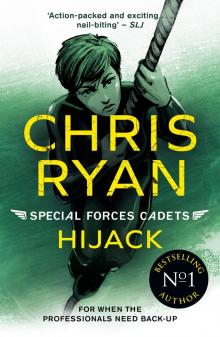 Hijack
Hijack Special Forces Cadets 2
Special Forces Cadets 2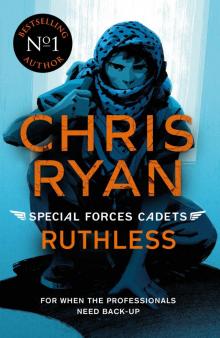 Ruthless
Ruthless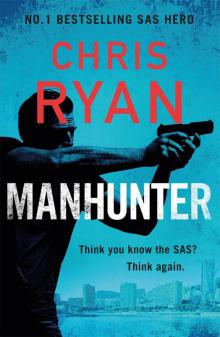 Manhunter
Manhunter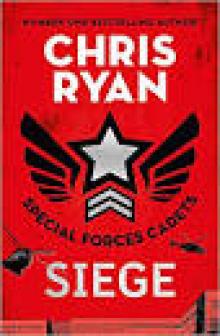 Special Forces Cadets 1
Special Forces Cadets 1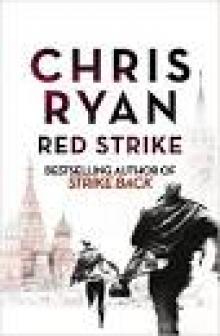 Red Strike
Red Strike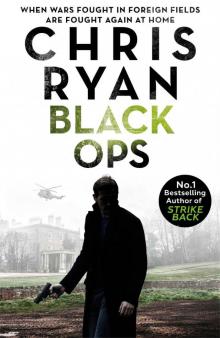 Black Ops
Black Ops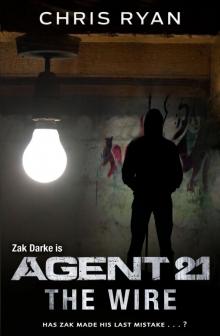 Agent 21: The Wire
Agent 21: The Wire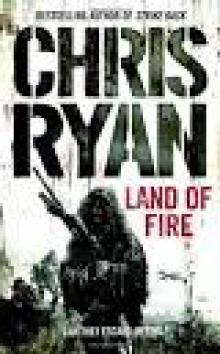 Land of Fire
Land of Fire Alpha Force: Fault Line
Alpha Force: Fault Line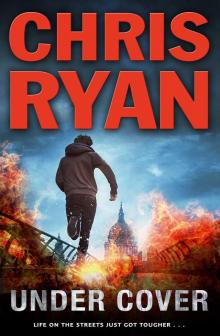 Under Cover (Agent 21)
Under Cover (Agent 21)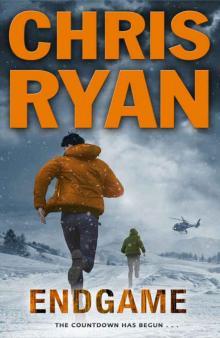 Endgame (Agent 21)
Endgame (Agent 21) Red Centre
Red Centre Blackout
Blackout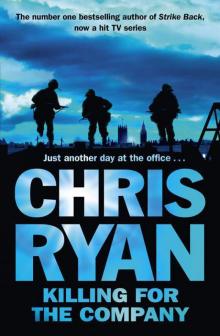 Killing for the Company
Killing for the Company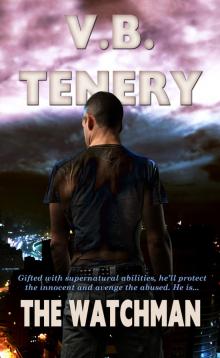 The Watchman
The Watchman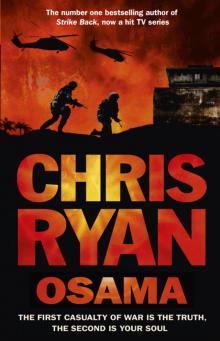 Osama
Osama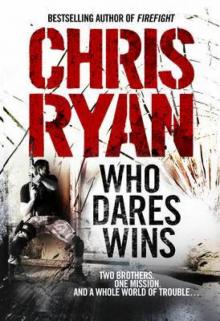 Who Dares Wins
Who Dares Wins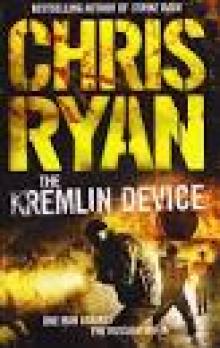 The Kremlin Device
The Kremlin Device Hunter Killer
Hunter Killer Alpha Force: Untouchable
Alpha Force: Untouchable Stand By Stand By
Stand By Stand By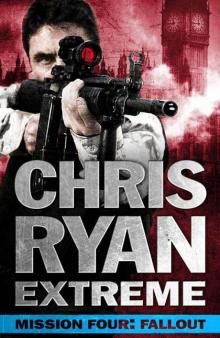 Chris Ryan Extreme: Hard Target: Mission Four: Fallout
Chris Ryan Extreme: Hard Target: Mission Four: Fallout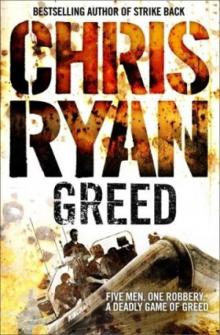 Greed mb-1
Greed mb-1 Alpha Force: Desert Pursuit
Alpha Force: Desert Pursuit Strike Back
Strike Back Greed
Greed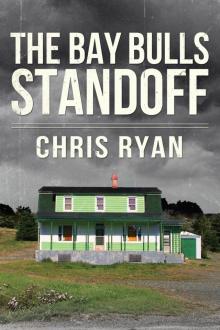 The Bay Bulls Standoff
The Bay Bulls Standoff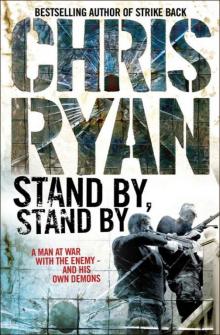 Stand By, Stand By gs-1
Stand By, Stand By gs-1 Outbreak
Outbreak Hunted
Hunted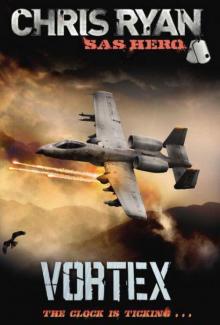 Vortex cr-4
Vortex cr-4 Rat-Catcher
Rat-Catcher Vortex
Vortex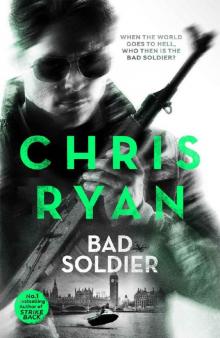 Bad Soldier
Bad Soldier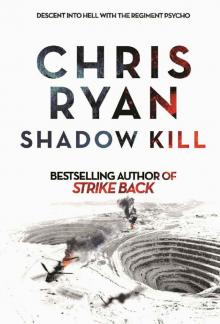 Shadow Kill: A Strikeback Novel
Shadow Kill: A Strikeback Novel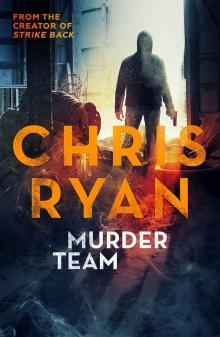 Murder Team (Kindle Single)
Murder Team (Kindle Single) One Good Turn
One Good Turn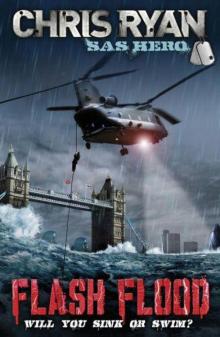 Flash Flood cr-1
Flash Flood cr-1 Night Strike
Night Strike Wildfire
Wildfire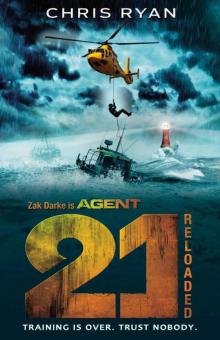 Agent 21: Reloaded: Book 2
Agent 21: Reloaded: Book 2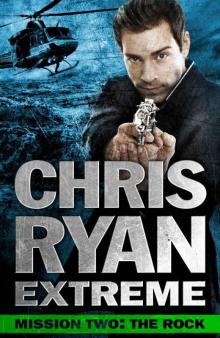 Chris Ryan Extreme: Hard Target: Mission Two: The Rock
Chris Ryan Extreme: Hard Target: Mission Two: The Rock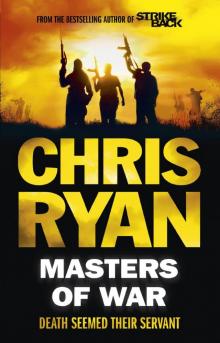 Masters of War
Masters of War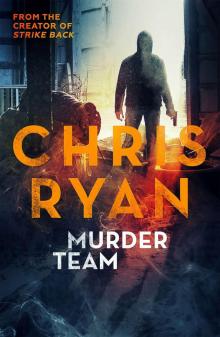 Murder Team
Murder Team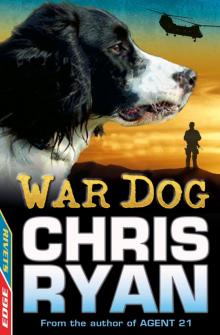 War Dog
War Dog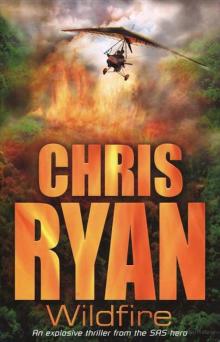 Wildfire cr-2
Wildfire cr-2 Survival
Survival The One That Got Away - Junior edition
The One That Got Away - Junior edition The Hit List
The Hit List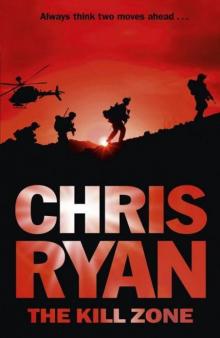 The Kill Zone
The Kill Zone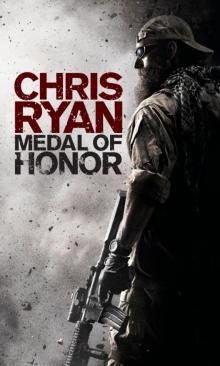 Medal of Honor
Medal of Honor Battleground
Battleground Twister
Twister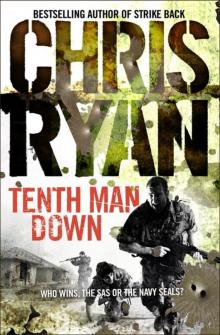 Tenth Man Down gs-4
Tenth Man Down gs-4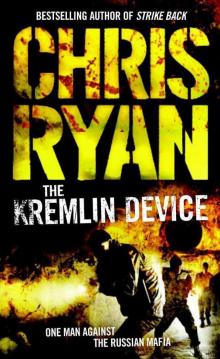 The Kremlin Device gs-3
The Kremlin Device gs-3 Hostage
Hostage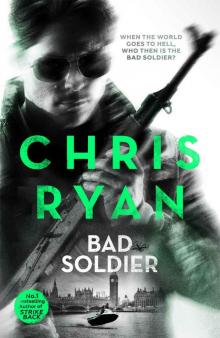 Bad Soldier: Danny Black Thriller 4
Bad Soldier: Danny Black Thriller 4 Alpha Force: Blood Money
Alpha Force: Blood Money Firefight
Firefight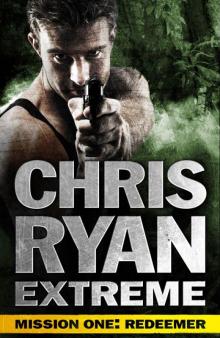 Chris Ryan Extreme: Hard Target: Mission One: Redeemer
Chris Ryan Extreme: Hard Target: Mission One: Redeemer Hit List
Hit List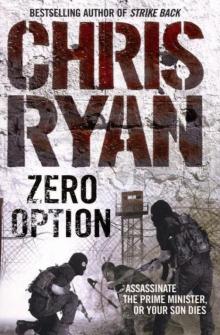 Zero Option gs-2
Zero Option gs-2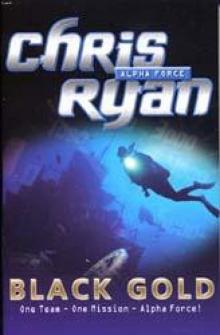 Black Gold
Black Gold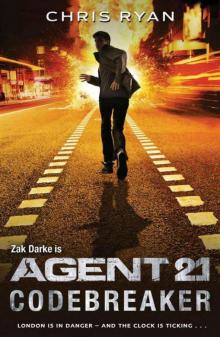 Agent 21: Codebreaker: Book 3
Agent 21: Codebreaker: Book 3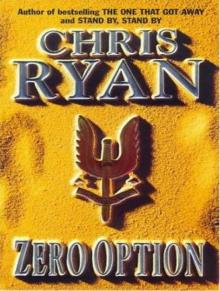 Zero Option
Zero Option Ultimate Weapon
Ultimate Weapon Tenth Man Down
Tenth Man Down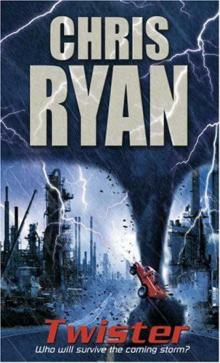 Twister cr-5
Twister cr-5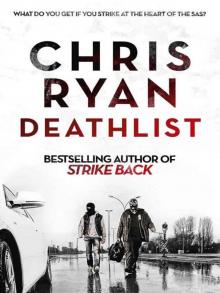 Deathlist
Deathlist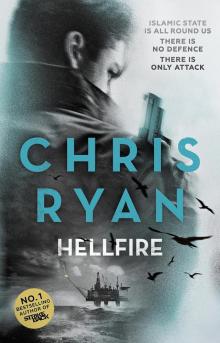 Hellfire
Hellfire Flash Flood
Flash Flood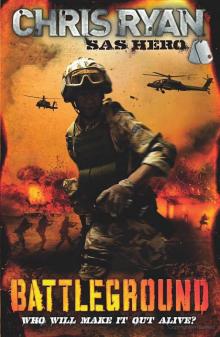 Battleground cr-6
Battleground cr-6 The Increment
The Increment